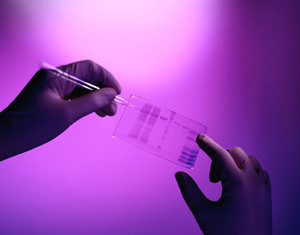Under the auspices of increased transparency for biosimilars the European Medicines Agency (EMA) has outlined the different means available for publishing quality information on biosimilars.
Transparency and quality characteristics for biosimilars
Home/Reports
|
Posted 18/11/2016
 0
Post your comment
0
Post your comment

In his presentation [1], at the 14th Annual European Biosimilars Group Conference, Dr Peter Richardson, Head of the Quality Office at the European Medicines Agency (EMA), discussed quality characteristics published for biosimilars approved in the European Union (EU).
Information on the quality aspects of biosimilars is available via the Public Assessment Summary Information for Biosimilars (PASIB), European Public Assessment Reports (EPARs), US Food and Drug Administration (FDA) Advisory Committee Meeting reports and EU examples.
For example, the PASIB for the biosimilar Herzuma (trastuzumab) includes, in a tabular form, information on the physicochemical testing methods used and the assays used to compare biological activity with the reference product. It also includes the outcomes of the quality data assessment, i.e. whether comparable or not, as well as any remarks concerning this comparability (or lack of).
In contrast, the EPAR for the etanercept biosimilar Benepali (SB4) includes a description of how the characterization of the biosimilar was carried out using appropriate techniques as described in the International Conference on Harmonisation of Technical Requirements for Registration of Pharmaceuticals for Human Use (ICH) guideline Q6B.
A further example, taken from a FDA arthritis advisory committee meeting for the infliximab biosimilar (Inflectra/Remsima; CT-P13), also summarizes quality information on the comparison of the biosimilar in a tabular form. Again giving details of the different tests used to determine similar efficacy, safety and immunogenicity, as well as giving an estimation of the potential impact of any differences.
No matter in what form they are presented the information provided by the various sources represents a substantial increase in transparency with respect to the quality aspects of biosimilars.
Editor’s comment
Readers interested to learn more about transparency for biosimilars are invited to visit www.gabi-journal.net to view the following manuscript published in GaBI Journal:
GaBI Journal is indexed in Embase, Scopus, Thomson Reuters’ ESCI, and more.
Readers interested in contributing a research or perspective paper to GaBI Journal – an independent, peer reviewed academic journal, please send us your submission here.
If you would like to receive a PDF copy* of the Richardson presentation [1], please send us an email.
*For profit organizations subjected to a fee
Related articles
The role of the IPRF in transparency for biosimilars
Achieving international regulatory convergence for biosimilars
Reference
1. Richardson P. EMA Biosimilar update: International Regulatory Convergence. 14th Annual Biosimilar Medicines Group Conference; 28-29 April 2016; London, UK.
Permission granted to reproduce for personal and non-commercial use only. All other reproduction, copy or reprinting of all or part of any ‘Content’ found on this website is strictly prohibited without the prior consent of the publisher. Contact the publisher to obtain permission before redistributing.
Copyright – Unless otherwise stated all contents of this website are © 2016 Pro Pharma Communications International. All Rights Reserved.
Guidelines
US guidance to remove biosimilar comparative efficacy studies
New guidance for biologicals in Pakistan and Hong Kong’s independent drug regulatory authority
Policies & Legislation
EU accepts results from FDA GMP inspections for sites outside the US
WHO to remove animal tests and establish 17 reference standards for biologicals
EU steps closer to the ‘tailored approach’ for biosimilars development

Home/Reports Posted 21/11/2025
Advancing biologicals regulation in Argentina: from registration to global harmonization

Home/Reports Posted 10/10/2025
The best selling biotechnology drugs of 2008: the next biosimilars targets








Post your comment